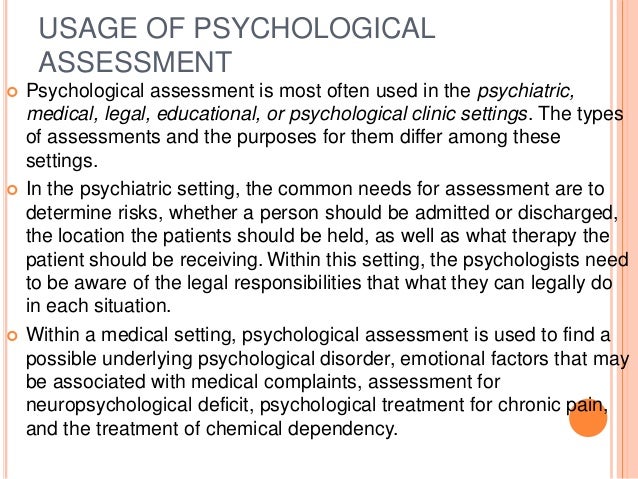Psychological Testing Tools For Children


Who does psychological assessments? They do not do psychological testing. Psychologists who work with children and young people may also work with parents. Childhood Autism Rating Scale – Second Edition (CARS-2) Depression, Anxiety and Stress Scale (DASS-42) Autism Spectrum Disorder diagnostic tool – the latest 'gold standard' Autism Diagnostic Observation Schedule #2 (ADOS 2) A range of other Depression and Anxiety measures for children and adolescents. Tools for Psychological Testing. What are the different tools being used for psychological testing? Children Apperception Test –.
It’s not easy having a child who struggles in school.
The most common test by far is the MMPI-2, with other tests like the MCMI-III and the used to confirm the MMPI-2 results. 'Classic' tests such as the are not used as frequently in custody evaluations since the advent of more specialized tests, such as the (TAT) and the series of tests developed by Barry Bricklin of Bricklin Associates ( (BPS), (PORT), (PASS), (PPCP), etc). The Best Of The Complete Mozart Edition Philips Hue more. This list is provided to familiarize you with the most common kinds of tests you may be given during the course of a custody evaluation. Specifics on the test scales, ranges, and administration are not detailed here in order to preserve the test's validity. Providing information on how the tests are scored, or what are considered 'acceptable' responses would invalidate the purpose of these tests. (This page will be expanded as more test information is gathered.) MCMI-III™ (Millon™ Clinical Multiaxial Inventory-III) The Millon Clinical Multiaxial Inventory-III instrument is a self-report instrument designed to help the clinician assess DSM-IV-related personality disorders and clinical syndromes.
A significant revision of the MCMI-II™ instrument, this instrument incorporates new items, a new item-weighting system, and new scales to provide insight into 14 personality disorders and 10 clinical syndromes. The instrument is useful in assessing Axis I and Axis II disorders based on the new DSM-IV classification system, identifying the personality disorders that underlie a patient's presenting symptoms, and designing appropriate and efficient treatment programs. MACI™ (Millon™ Adolescent Clinical Inventory) The Millon Adolescent Clinical Inventory instrument is a brief self-report personality inventory with a strong clinical focus. Evolving from the Millon Adolescent Personality Inventory (MAPI™) instrument, the MACI instrument was designed with a more focused normative sample consisting of adolescents in various clinical treatment settings. Through a series of contemporary questions, it helps the clinician assess an adolescent's personality, along with self-reported concerns and clinical syndromes.
The MACI instrument is used for adolescent assessment in outpatient, inpatient, or residential treatment settings. The MACI instrument can be used by psychologists, psychiatrists, school psychologists, juvenile justice professionals, and other mental health professionals. It can be useful in initial evaluation of troubled adolescents to confirm diagnostic hypotheses, in planning individualized treatment programs, and in measuring treatment progress. MAPI™ (Millon™ Adolescent Personality Inventory) The Millon Adolescent Personality Inventory (MAPI) instrument is a brief self-report inventory designed specifically for assessing adolescent personality characteristics including coping styles, expressed concerns, and behavioral patterns. The MAPI instrument was normed on both normal adolescents and adolescent patients.
The MAPI instrument is used in clinical, correctional, and educational settings by psychologists, psychiatrists, and school counselors as well as other mental health and guidance professionals. It can be very useful in the initial evaluation of typical and troubled adolescents and in diagnosis and treatment planning. Grib1 To Grib2 Converter Weight.
NOTE: The MAPI is still available for sale and is used, although in far fewer instances than the MACI. Because it includes both clinical and 'normal' adolescent norms, it is useful in situations where the clinician cannot assume clinical problems. MBHI™ (Millon™ Behavioral Health Inventory) The Millon Behavioral Health Inventory instrument is a brief self-report personality inventory designed to help the clinician assess the psychological coping factors related to the physical health care of adult medical patients. The MBHI instrument provides valuable information about the patient's style of coping and the patient's perceptions of the kinds of stress that may be affecting his or her medical condition. The MBHI instrument is used in health care and counseling settings by psychologists and psychiatrists who work with patients in hospitals, clinics, and private practice. It is useful in: • Evaluation and screening of physically ill, injured, and surgical patients to help identify possible psychosomatic complications or help predict response to illness or treatment. • Workers' compensation evaluations to help assess stress-related claims.
Comments are closed.